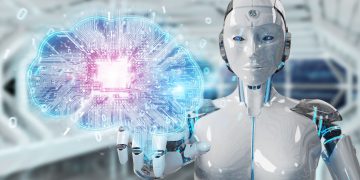By Emmanuel Nduka
Nigeria plans to train 70% of its young population, aged 16 to 35, in Artificial Intelligence (AI) skills to help reduce the national unemployment rate by five percentage points.
According to the National Bureau of Statistics (NBS), Nigeria’s unemployment rate stood at 5% in the third quarter of 2023, with the formal sector providing only 7.7% of job opportunities.
A draft of Nigeria’s National AI Strategy, released on Friday, highlights the growing global demand for AI expertise and stresses that a highly skilled workforce is crucial for a thriving AI sector.
Crafted by Nigerian AI experts and stakeholders under the Ministry of Communication, Innovation, and Digital Economy, the strategy aims to harness the country’s strengths and address its challenges, ensuring Nigeria remains competitive in the AI field.
The AI sector is expected to contribute $2.9 trillion to Africa’s GDP by 2030, with Nigeria’s AI market projected to reach $434.4 million by 2026.
Developing AI skills is a key strategy for leading nations and organizations to attract and cultivate talent in AI technologies. The draft document outlines a comprehensive approach to building an AI-ready workforce, including educating future generations, training the current workforce, and attracting both local and international talent.
The document emphasizes the need to focus on technical skills as well as change management, interaction design, legal and business models, communication, and innovation management.
The strategy envisions Nigeria actively contributing to the global workforce and fostering job creation and entrepreneurship in AI-driven sectors. Given Nigeria’s youthful population, there is significant potential for economic growth through AI.
The International Finance Corporation (IFC) forecasts that by 2030, 28 million jobs in Nigeria will require digital skills, reflecting a market valued at $130 billion.
Despite these opportunities, the strategy acknowledges challenges such as high poverty rates, unemployment, and insecurity that could hinder the full potential of Nigeria’s youth.
Olumide Balogun, Director of Google West Africa, highlighted AI’s potential to address these issues. “AI is often associated with robotics and complex technologies, but its applications can significantly impact areas like flood forecasting, prenatal care, disease control, and food security,” he noted.
A major obstacle is the shortage of skilled AI professionals. Only 3% of IT professionals in Nigeria specialize in AI and robotics. The strategy points out that the current educational infrastructure is inadequate, with many institutions lacking the resources and trained staff to effectively teach AI.
The GSMA recently reported that Nigerian universities struggle to hire professors with AI expertise, affecting the quality of AI education.
The AI strategy also emphasizes the need for responsible data collection, addressing infrastructure gaps, and improving internet access to support innovation in the country.



































